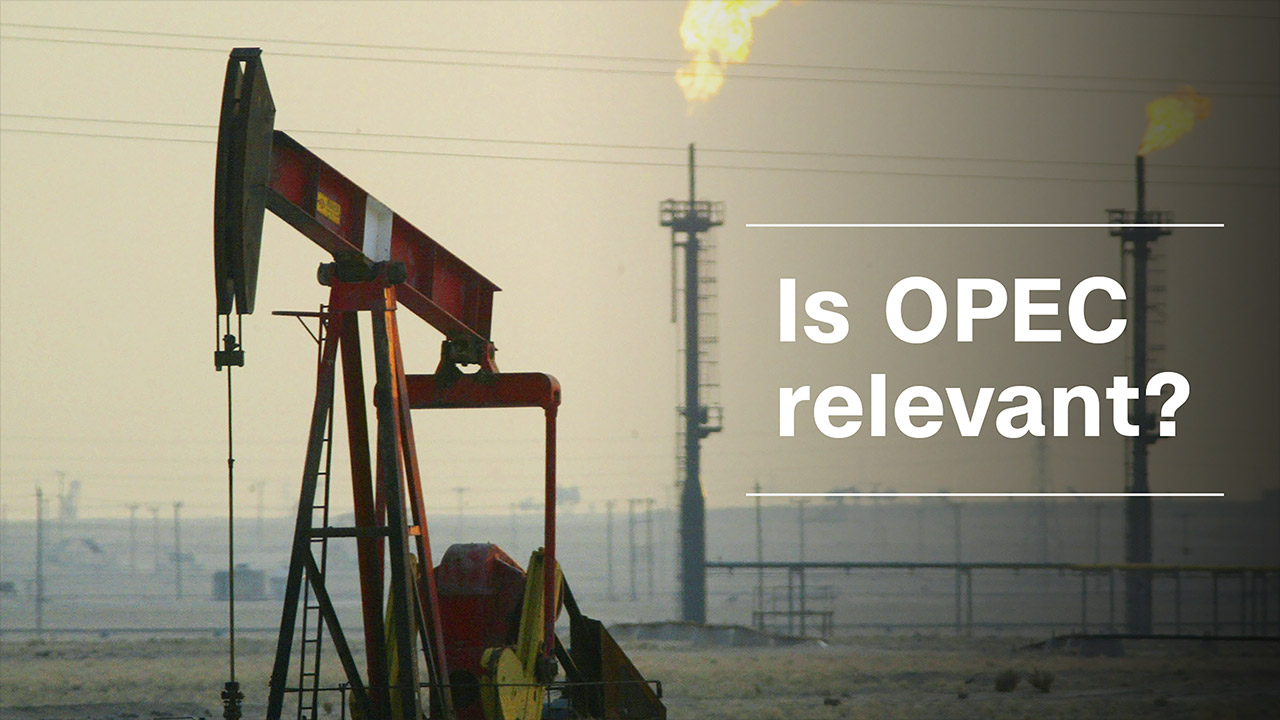
OPEC is struggling to keep its promises.
U.S. crude oil prices dipped by as much as 1% on Friday after an International Energy Agency report showed that major oil producers are struggling to comply with an agreement to slash output.
OPEC and other major producers including Russia agreed to reduce output in November, part of an attempt to eliminate a global oil glut and boost prices. In May, the group extended the deal to the end of March 2018.
But the strength of the agreement now appears to be fading.
The IEA, which monitors energy market trends for the world's richest countries, said that compliance by OPEC countries dropped to a new low of 75% in July. The rate for non-OPEC producers was even weaker at 67%.
Within OPEC, the United Arab Emirates and Iraq were among the worst offenders, while Kuwait and de-facto cartel leader Saudi Arabia pumped within the allocated limit. Mexico was the only non-OPEC signatory in full compliance.
In total, the group produced 470,000 barrels a day more than agreed.
Related: OPEC almost always cheats
Since 1989, OPEC has hammered out several production cuts just like the one it negotiated in 2016. And in that period, OPEC producers have pumped more oil than their quotas in all but a handful of months.
The effectiveness of the latest production cut has been hampered by increased output in the United States.
Related: Oil races back to $50 -- but can it stay there?
The IEA assessed Friday that stronger-than-expected demand is now helping to make the market more balanced. But it warned that producers need to work harder to convince investors of their resolve.
"If re-balancing is to be maintained, the producers that are committed to seeing the task through to March 2018 need to convince the market that they are in it together," the report said. "It is not entirely clear that this is the case today."


